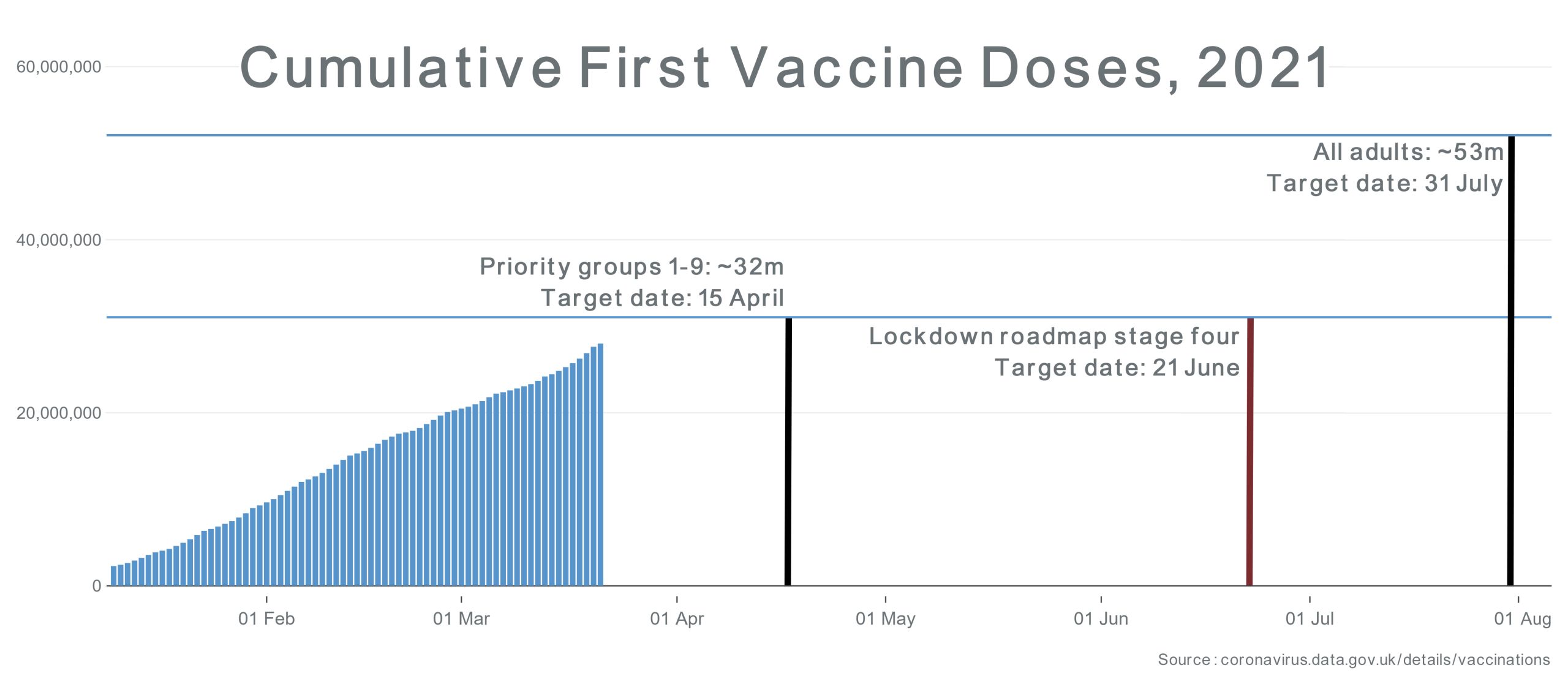How counting down to clubs creates problems for the night time economy
The UK's roadmap out of lockdown has brought hope to those working in the night time economy, but reopening the sector will be a feat accompanied by problems unseen by punters and politicians.

Kicking off at 12.01am on 21 June, Mint Warehouse in Leeds will be the first nightclub in the UK to reopen. Yet head of events Stuart Forsyth is unsure of what measures will be in place to protect customers against coronavirus.
“Not even Boris knows what’s happening,” he laughed.
In February, the government announced their intention to remove all legal limits on social contact from 21 June at the earliest. Though the thought of going to a nightclub still seems laughable to some, the target date has brought much-needed hope to the industry which was first to close last year and will be the last to reopen.
“I think the announcement from the government came as a surprise to everyone in the industry and has created so much positivity for us all,” Mr Forsyth continued.
“It's going to be historic scenes those first few months, it's amazing to be back and we keep our fingers crossed everything goes to plan.”
That this came as a surprise suggests industry professionals have been kept as much in the dark regarding their future as the public, despite now being tasked with taking venues from derelict to fully functioning events spaces in only four months, all while managing the threat of becoming new centres of future outbreaks.
Before announcing the roadmap out of lockdown, Boris Johnson suggested rapid testing could be used by “those parts of the economy we couldn't get open last year.” This was met with a mixed response from the industry.

“We think it is a good idea if we need them to get events going,” said Bethany Okogba, promotions manager at The Leadmill, Sheffield.
“But we are hoping the vaccine will have reached everyone by 21 June and it won't be necessary.”
The Leadmill unveiled a full week of reopening events the same night the roadmap was announced.
“We saw the leak like everyone did around 6pm and then by 6.15pm had decided we wanted to announce just after Boris' speech,” continued Ms Okogba.
“So we got the tickets online, the online event ready and made up the artwork in 45 minutes and then we launched."
At the time of writing, the estimated date for all adults to have been offered a first dose of the vaccine is 31 July. In this scenario, many younger people attending these events would be unvaccinated. Testing could therefore be vital in preventing outbreaks among younger age groups.
However, lateral flow devices (LFDs), currently used in schools, are notoriously unreliable. According to Public Health England, LFDs have a sensitivity of 76.8%, meaning of those infected, 23.2% will receive a negative result. This increases to 42.5% when testing is conducted by self-trained staff. Former care worker Kate Sheldon, 23, suggested this could render mass testing at nightclubs impractical.
“The tests I’ve seen first-hand in health care are not particularly accurate,” she said.
“Asking people under the influences of various substances to do that might not go exactly to plan because they are quite an invasive test and I can picture a lot of people being sick.”
Finally the news we’ve all been waiting for! 🎉
— The Leadmill (@Leadmill) February 22, 2021
It’s looking like we’ll be back, running at full speed with standing capacity club nights at the end of June 🤞
Expect a full week of packed out parties, from the very second we’re allowed them! pic.twitter.com/NPMcc7hx7n
Above: LFD accuracy. Sensitivity means the proportion of people with the disease that have a positive test. Specificity means the proportion of people without the disease that have a negative test.

Above: At the current rate, all adults in the UK will be offered a first dose of the vaccine in advance of the government's target dates. However, a shortage of supplies is expected in April.
Silvana Kill, director of operations at the Night Time Industries Association, was more frank: “There is simply no way rapid / lateral flow tests can happen on site,” she said.
“There needs to be a facilitation where people would be tested and they would need to wait for a period to get the ‘all clear’. To expect businesses to fit the cost is not realistic.”
The NTIA are predicting a 70% decline in trade for the sector. Ms Kill suggested ventilation, sanitation, staff training and customer communication are also needed to reduce “viral load”, meaning clubs could incur extra costs of thousands of pounds. Experience is integral to maintaining demand. Higher prices, long queues, invasive tests and confusing rules all make attendance less appealing.
Additionally, before Covid, most venues needed to sell 70% of their tickets to break even, but this threshold will increase to 80% after June. British nightlife's core demographic is also the worst affected by the pandemic financially. According to ONS, 18-34-year-olds account for 88.3% of job losses from the past year.

"I did lose my job in the pandemic, I lost my job in a school, I lost the summer job I had as well working for the National Citizen Service and I recently quit my job in the care home," said Ms Sheldon.
"I’ve been making up for lost finances this year so I’d want to spend money on something I know I would enjoy. I’m more looking forward to talking to people and being in their houses."
Nevertheless, Mint Warehouse’s “Grand Reopening” has already sold out, as have three of the back-to-back parties at The Leadmill. For the time being, the need to celebrate is outweighing consumers' financial peril.
Mr Forsyth said: “[Easing] will help businesses get back on their feet, provide hundreds of thousands of jobs for everyone from the freelancers, to bar staff, sound technicians, festival riggers, artists and so many more."
However, ticket sales are not a perfect indicator of attendance. Claire Angier, a 22-year-old administrative assistant at Flowers Medical Centre in Sheffield, bought a ticket to “Triple Cooked” at Beaver Works, Leeds, soon after the February announcement.
She said: “If it’s going to spread, it’s going to spread in a club. If it was apparent that Covid is still a big issue and still spreading really rapidly and clubs were open I think that would ruin the experience.
“If it gets to that point when it’s time to go to the event and that’s the case I’ll just not go."
Above: minimum occupancy needed for nightclubs to break even, before and after the pandemic. More tickets will need to be sold to counterbalance additional expenses required in reducing the risk of exposure to the virus.
Above: net change in payrolled employees by age, February 2020 - February 2021. 18-34 year-olds account for 88.3% of job losses over the past year.
Over the past decade, more than half of Britain’s clubs have permanently shut. Like many trends, this has been accelerated, rather than caused, by the pandemic.
The longer it remains shut, the more intensely promoters, punters and politicians desire to return to the dance-floor. But reopening the night time economy too quickly, without adequate support, could yet contribute to its demise.

